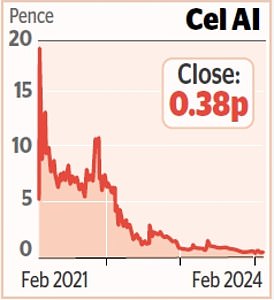Investors welcomed a series of positive updates on AstraZeneca’s lung cancer treatments.
Results from a trial showed that the pharmaceutical giant’s drug Tagrisso, a tablet taken once a day, along with chemotherapy, delayed disease progression by almost nine months.
The combination also reduced the risk of disease progression or death by 38 percent compared to simply using the drug alone.
As a result, the US Food and Drug Administration approved the treatment, meaning AstraZeneca’s drug can be used alone or alongside chemotherapy in patients suffering from advanced lung cancer.
AstraZeneca also reported encouraging results from another trial that showed the positive impact Tagrisso had on the treatment of lung cancer patients when used after chemoradiotherapy.
Trial success: AstraZeneca’s lung cancer drug Tagrisso, a once-daily tablet used alongside chemotherapy, delayed disease progression by almost nine months
And in a third update, the company said an antibody drug it is developing with Japanese pharmaceutical firm Daiichi Sankyo to treat lung cancer was close to winning approval from U.S. regulators.
Susan Galbraith, executive vice president of oncology R&D at AstraZeneca, said: “Sometimes people are too nihilistic about lung cancer. If diagnosed early, it can make a difference in this disease.”
AstraZeneca wants about half of all lung cancer patients to be eligible for its treatments by 2030.
Sean Conroy, an analyst at Shore Capital, said that while the announcements were “largely expected, they all gradually help make the 2030 ambition look more achievable.”
Shares in the pharmaceutical group added 3.2 per cent, or 324 pence, to 10,418 pence. With US markets closed for Presidents’ Day, trading in London remained quiet.
The FTSE 100 managed to rise 0.22 per cent, or 16.79 points, to 7,728.50 and the FTSE 250 only managed to rise 0.13 per cent, or 24.97 points, to 19,216.90.
Anglo American is to cut 3,700 jobs in South Africa – around a fifth of its staff – after its profits plunged following a fall in metals prices.
Craig Miller, chief executive of the mining giant’s platinum business, said it was “important to understand that this has been a decision made as a last resort for the company.”
Producers have been hampered by falling demand as the shift to electric cars is replacing the need for metals used to make catalytic converters in combustion engine vehicles. The shares fell 1.3 per cent, or 24.2 pence, to 1,778 pence.
Troubled music label Hipgnosis Songs Fund will face its investment adviser and former boss in the High Court accused of stealing the company’s idea.
The London-listed company has asked Merck Mercuriadis, which set up the group in 2018, to cover the costs of any potential settlement that may arise from claims brought against it in court last year.
He supposedly got the idea from a fellow music industry executive.
But Hipgnosis said Mercuriadis, who defends the allegations, insisted the accusations are “baseless” and has refused to do so.
The fund will take it to the High Court to ensure a legally binding commitment. The shares fell 0.2 per cent, or 0.1p, to 66p.
Rolls-Royce shares hit their highest level since February 2019. The stock, which has more than tripled in value since Tufan Erginbilgic took over as chief executive last year, rose 3.4 percent, or 10 .9p, down to 334.2p.
British Gas owner Centrica went in the opposite direction after analysts at Jefferies and Citigroup downgraded its rating amid concerns about its trading costs. The shares fell 6 per cent, or 8.3p, to 130.8p.


